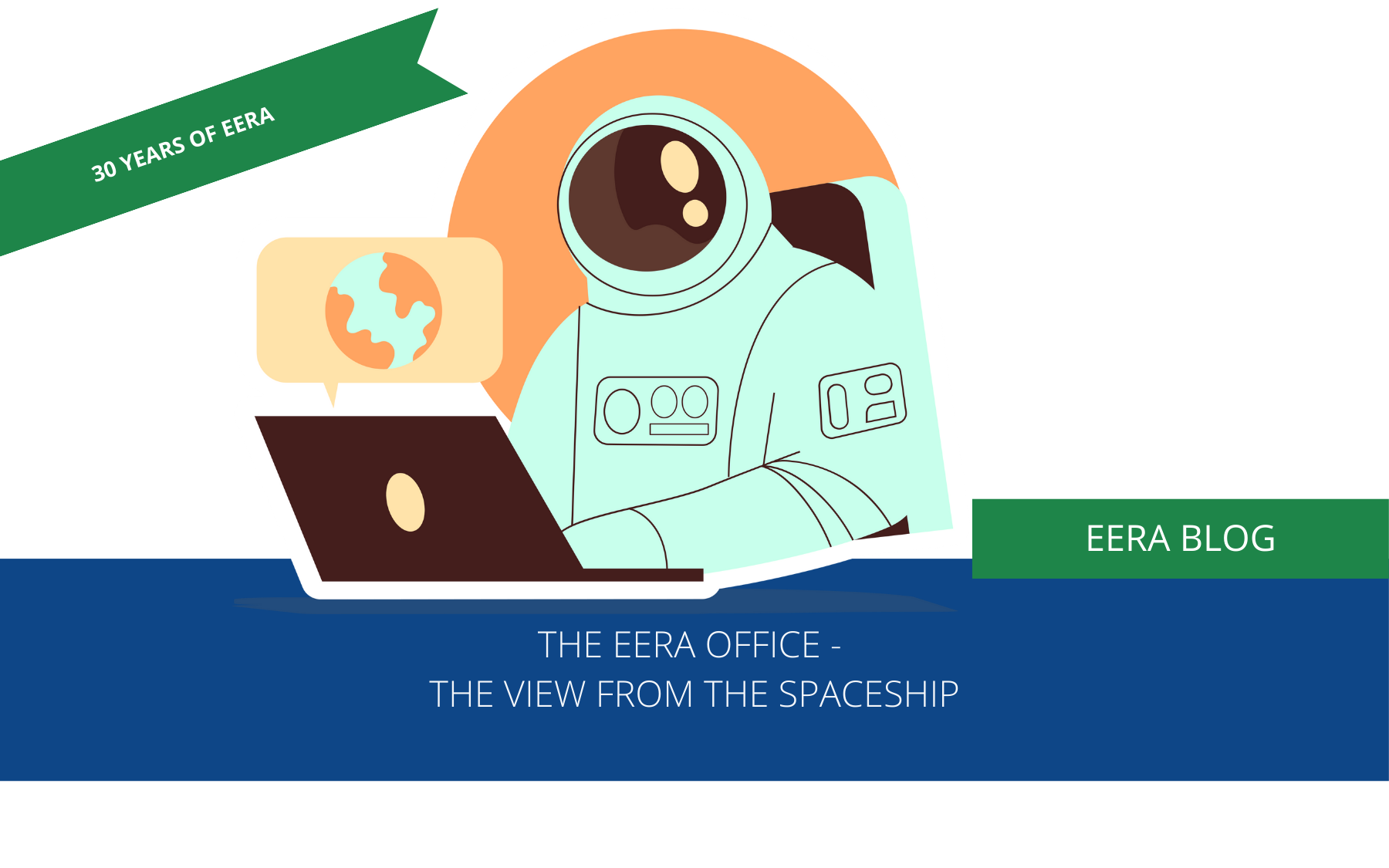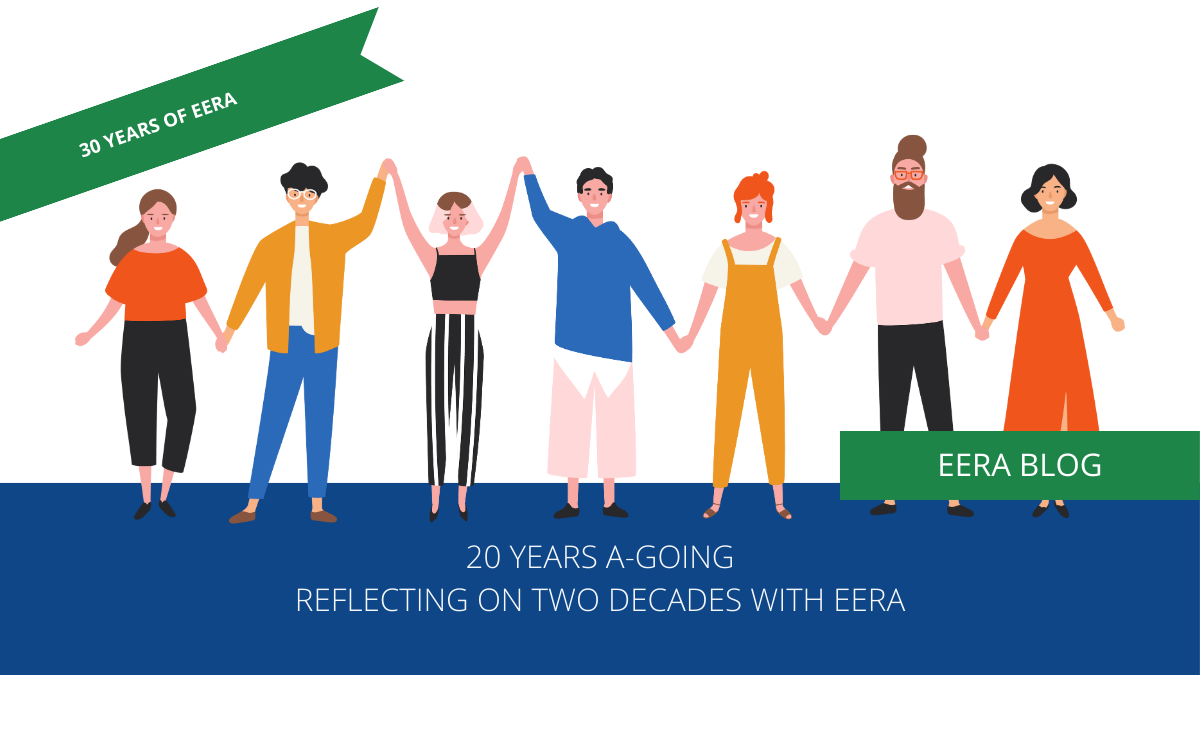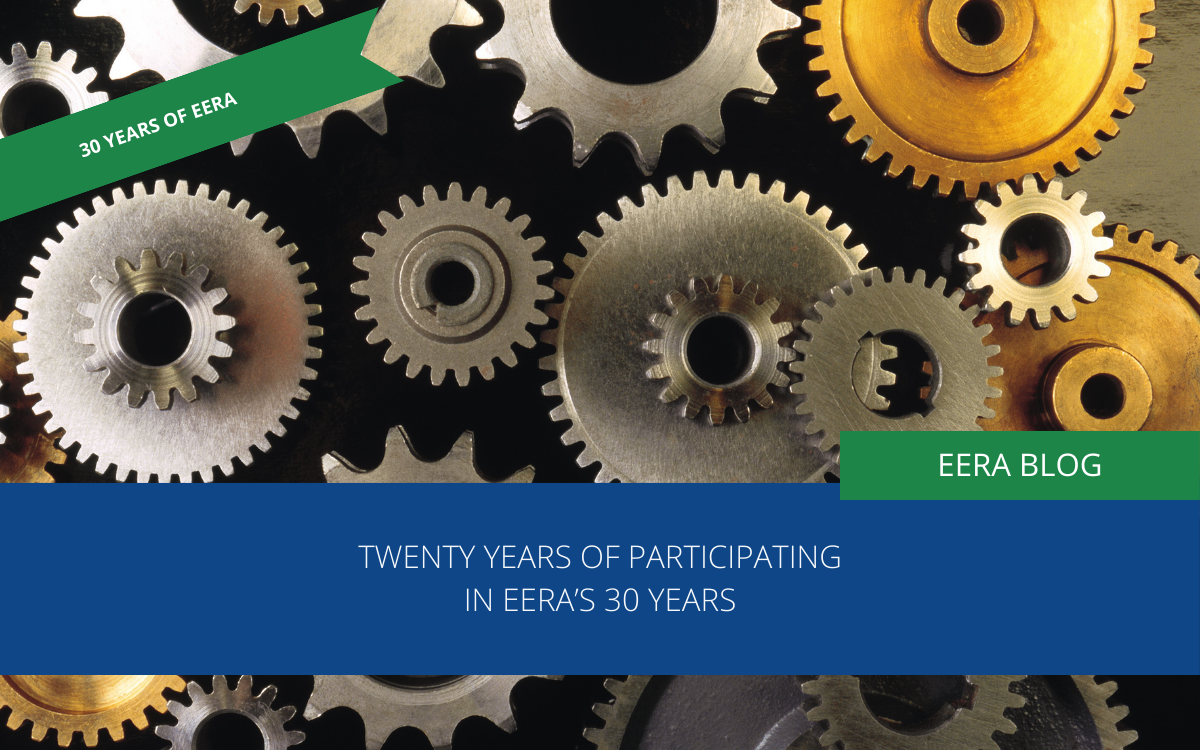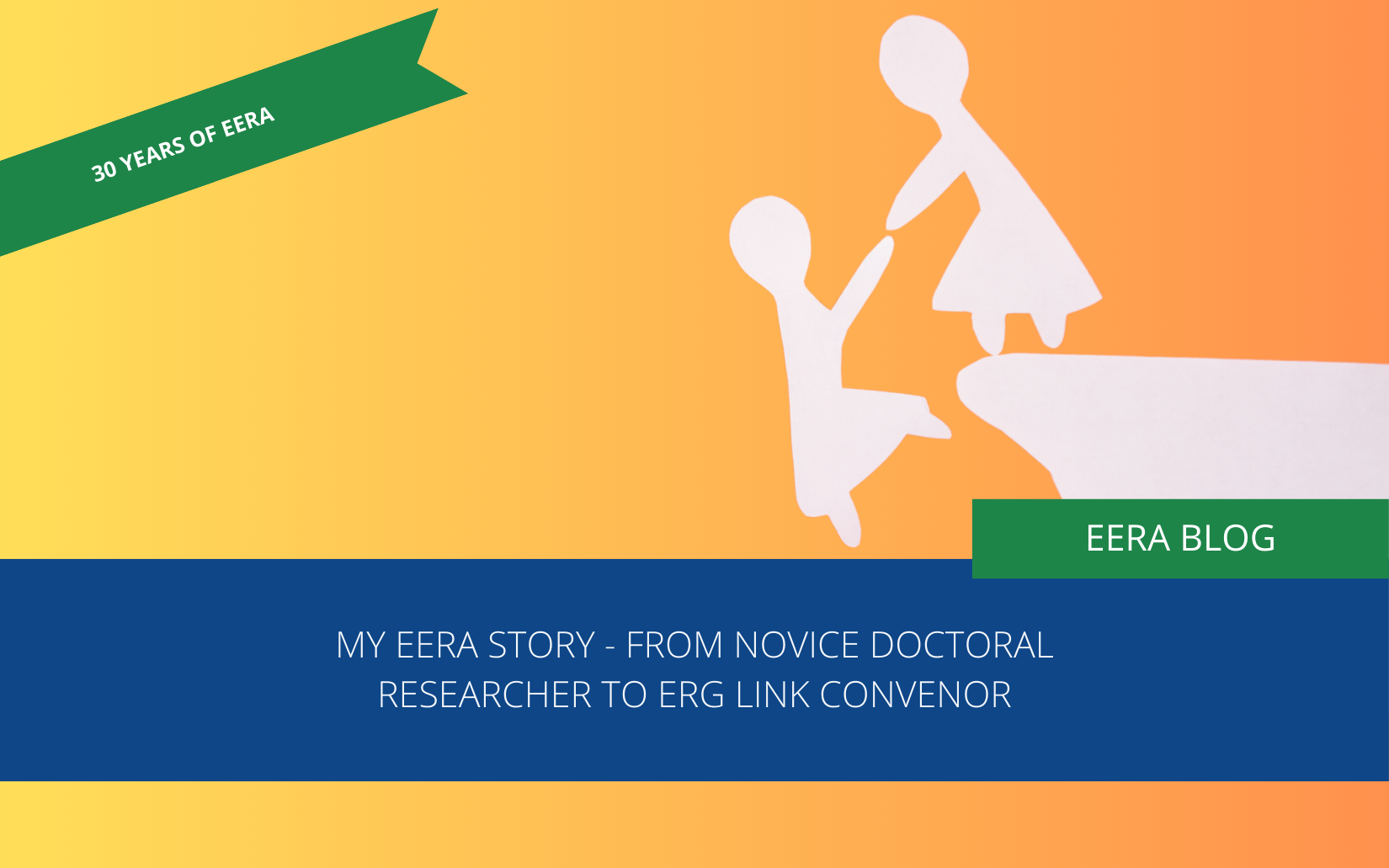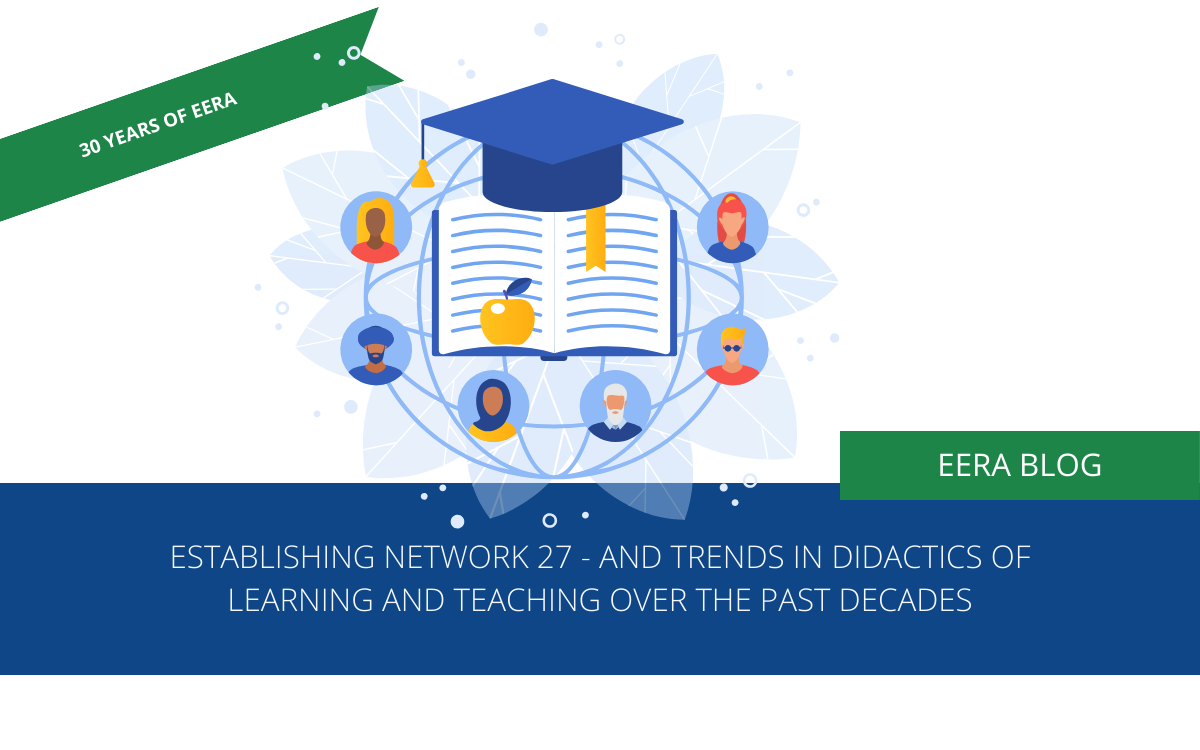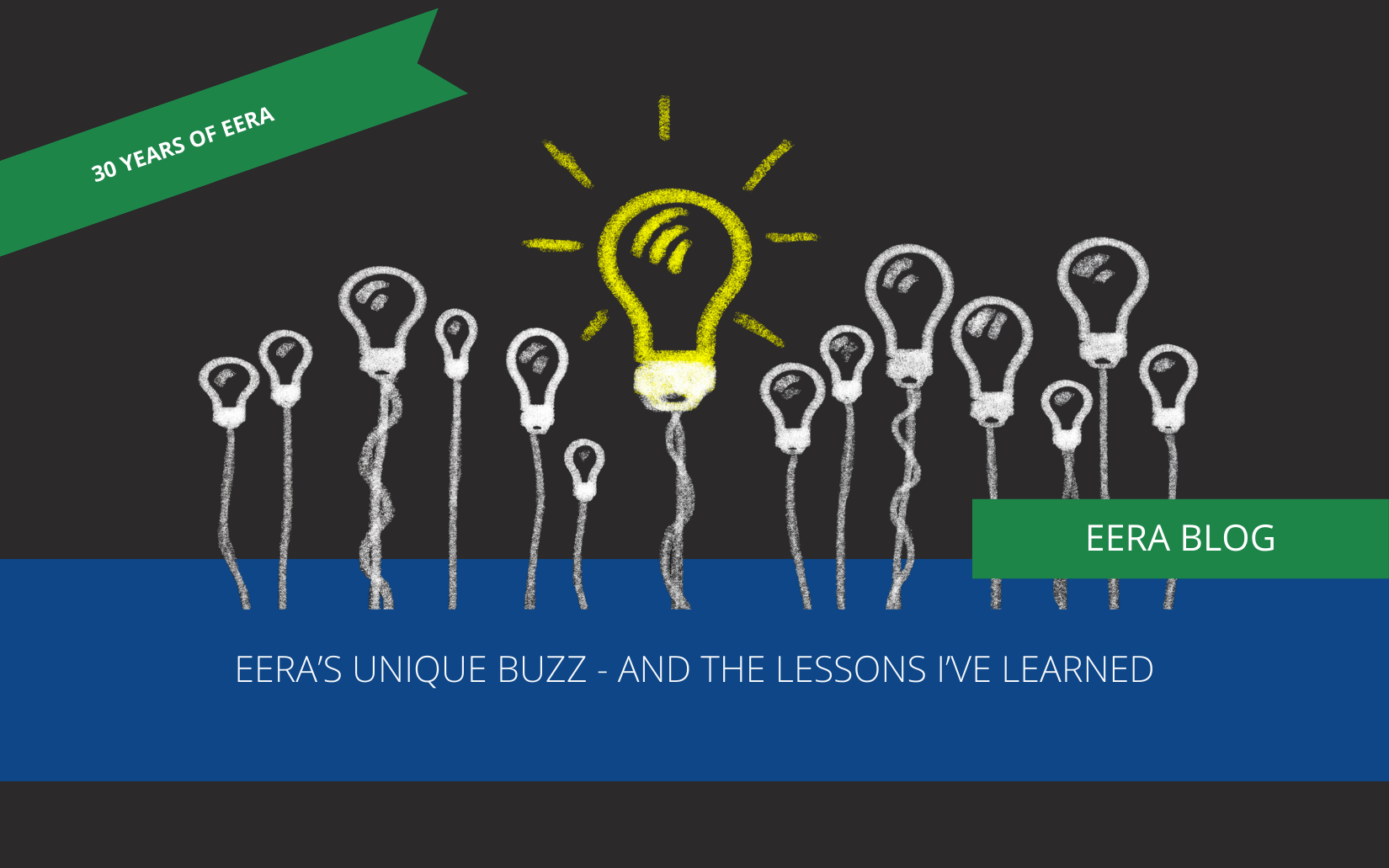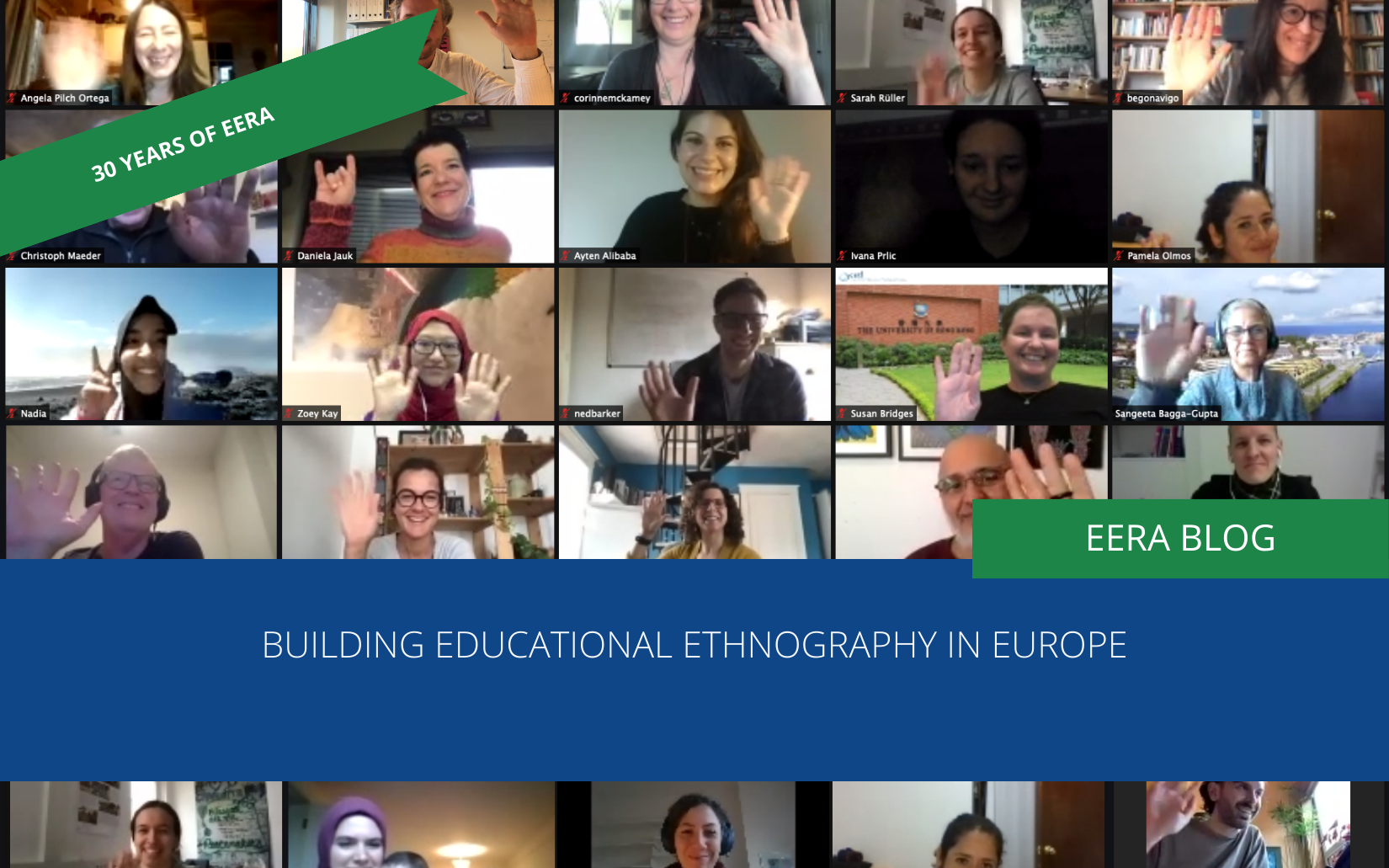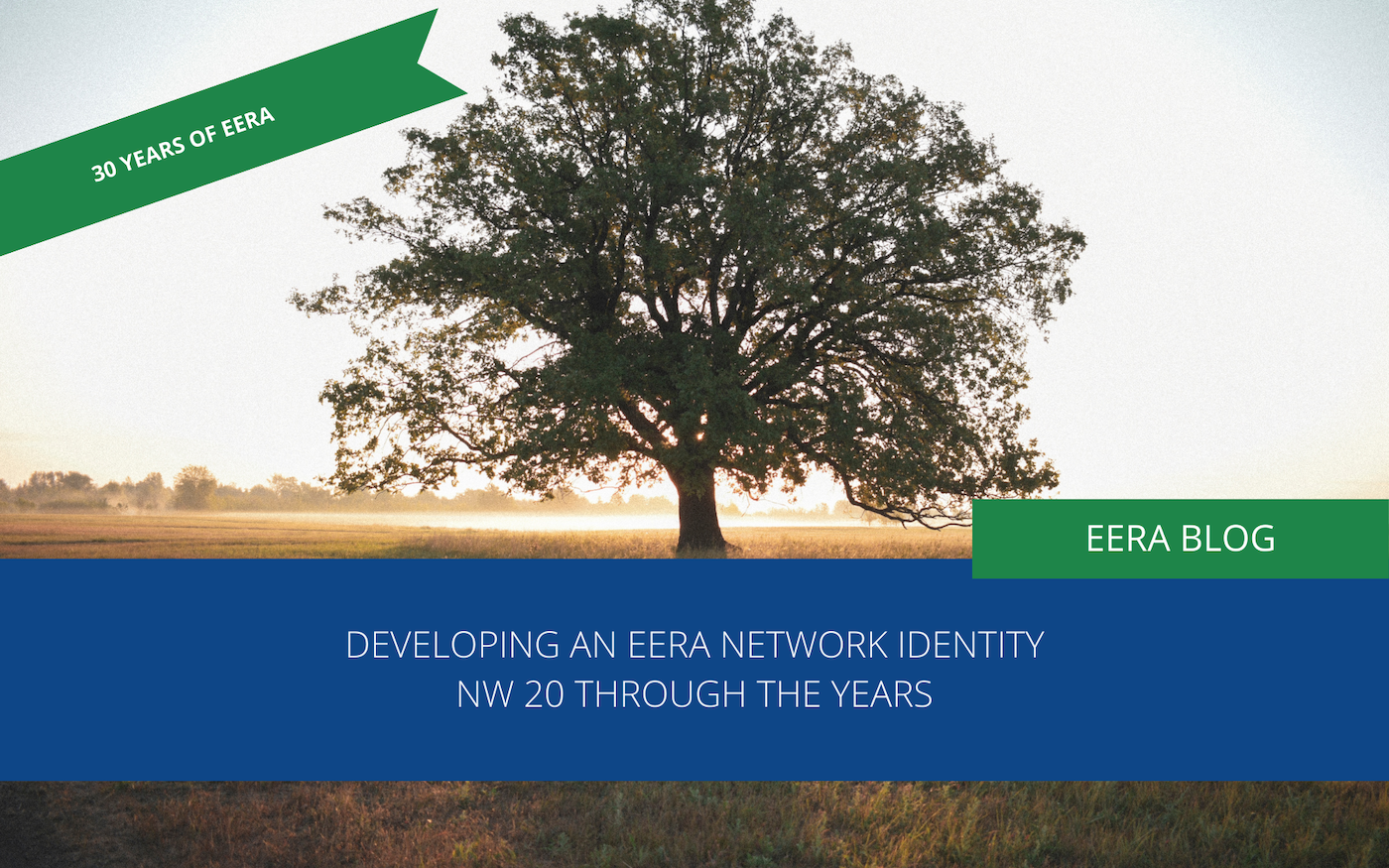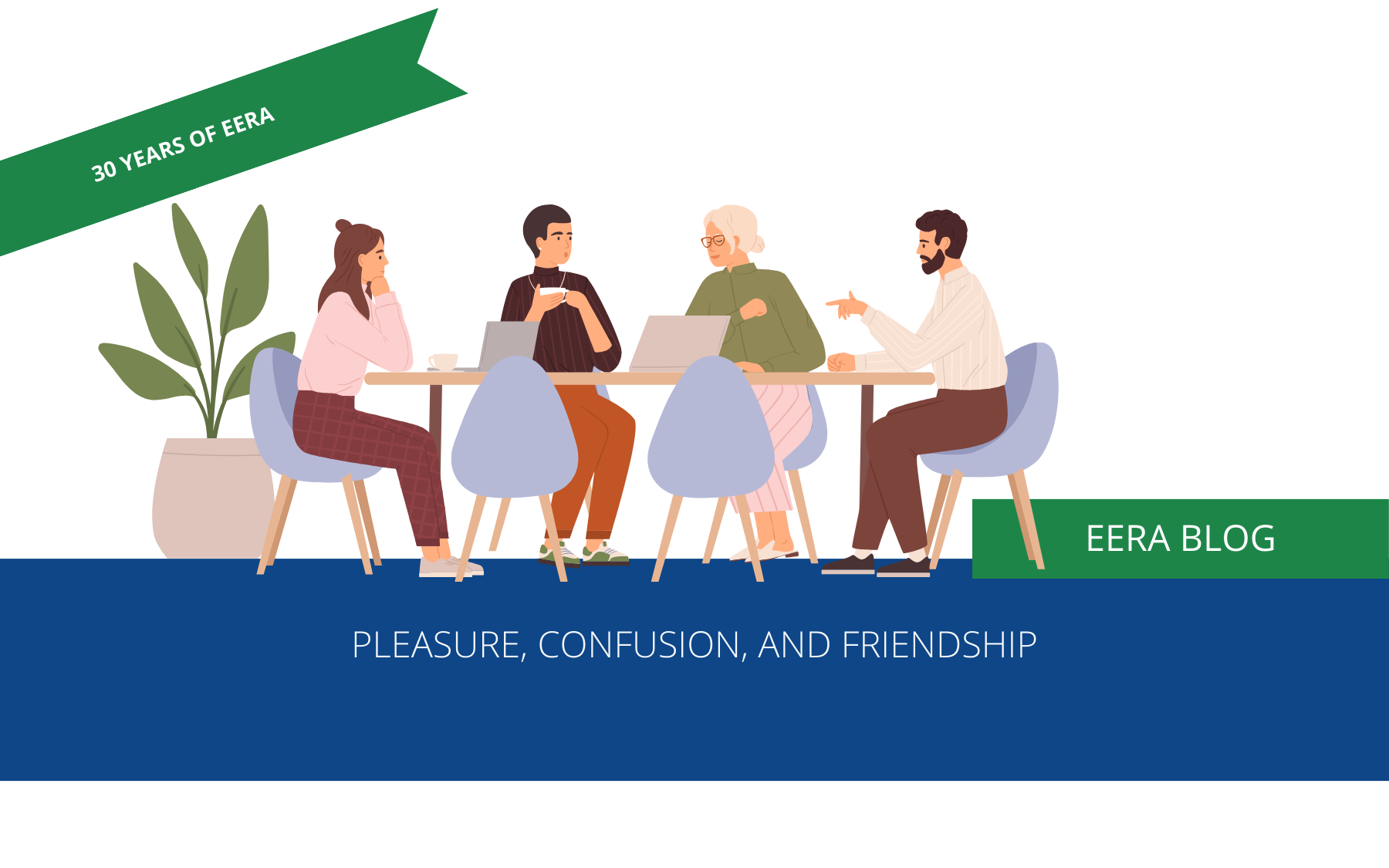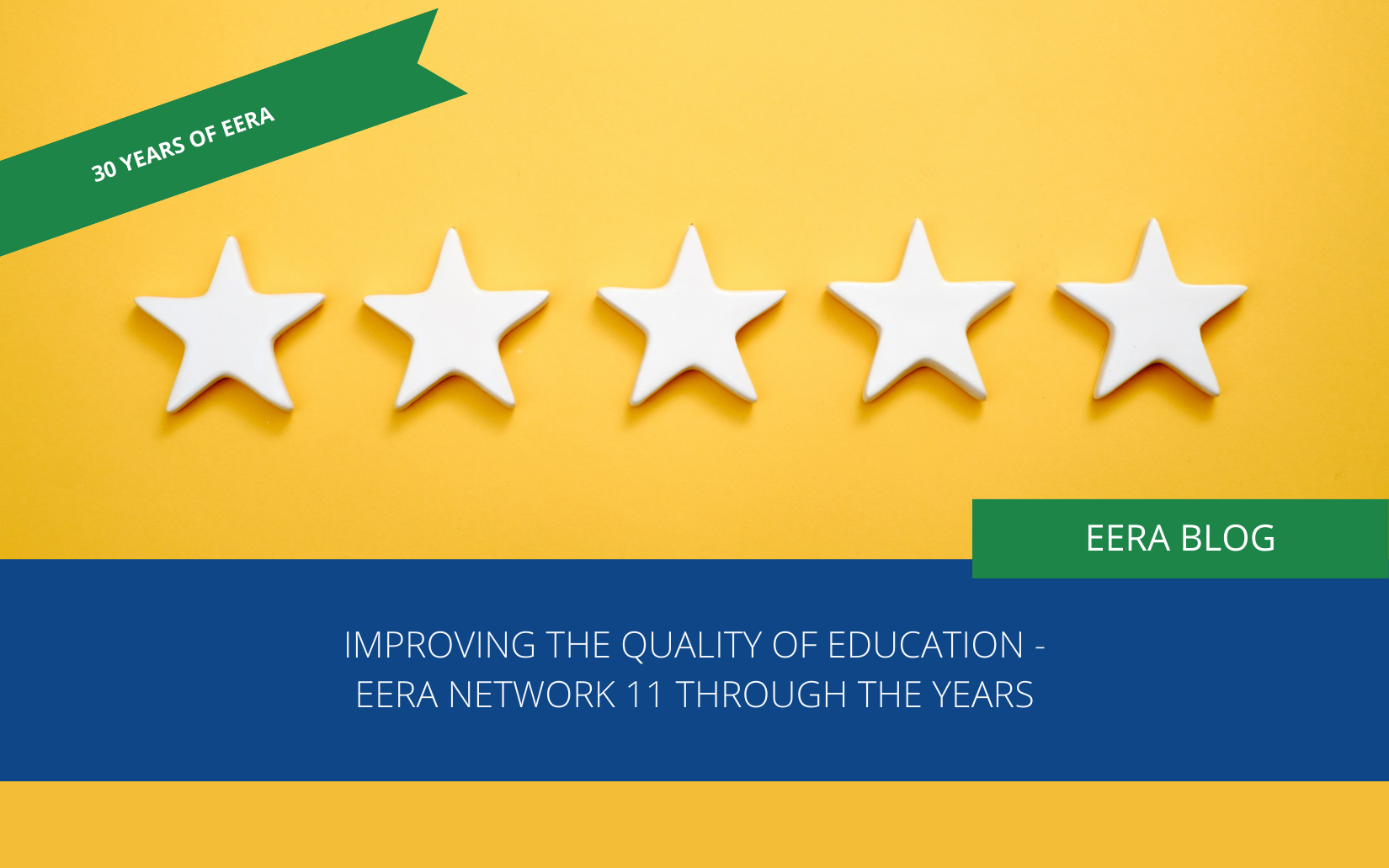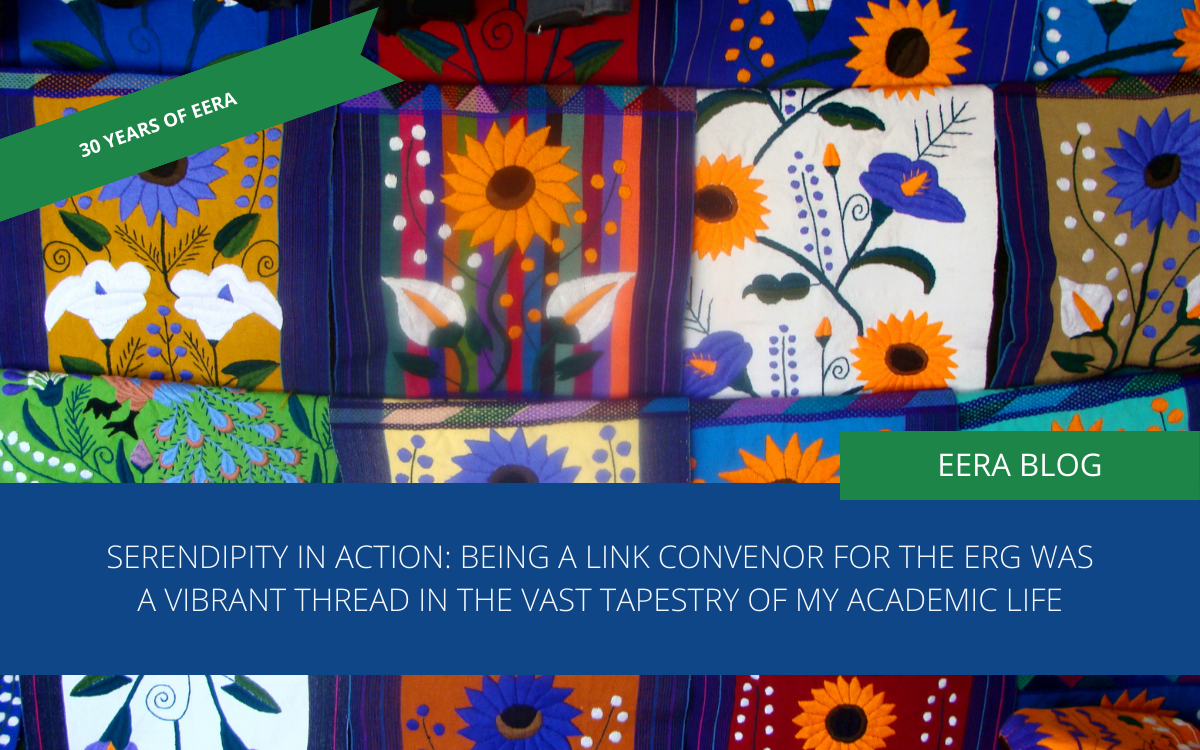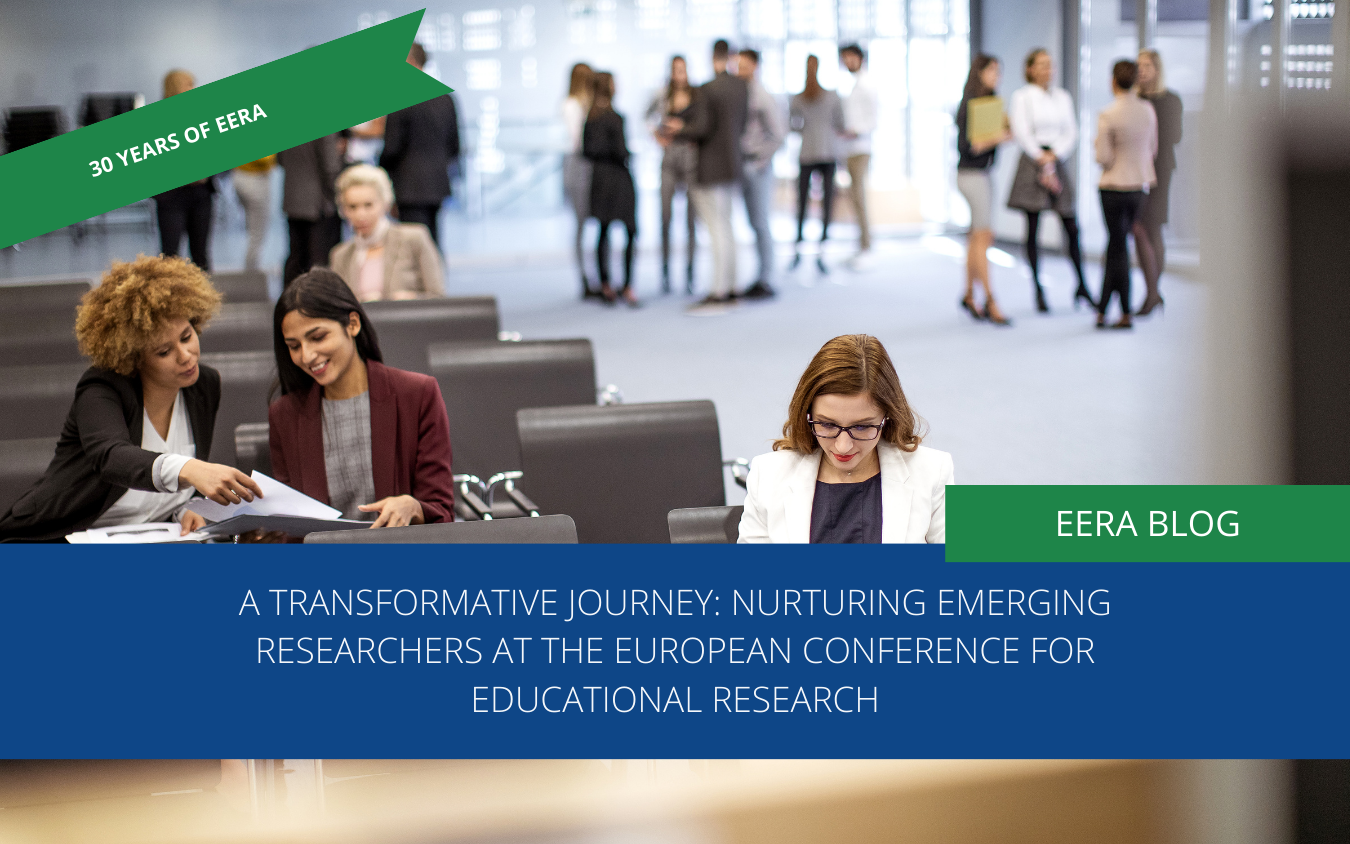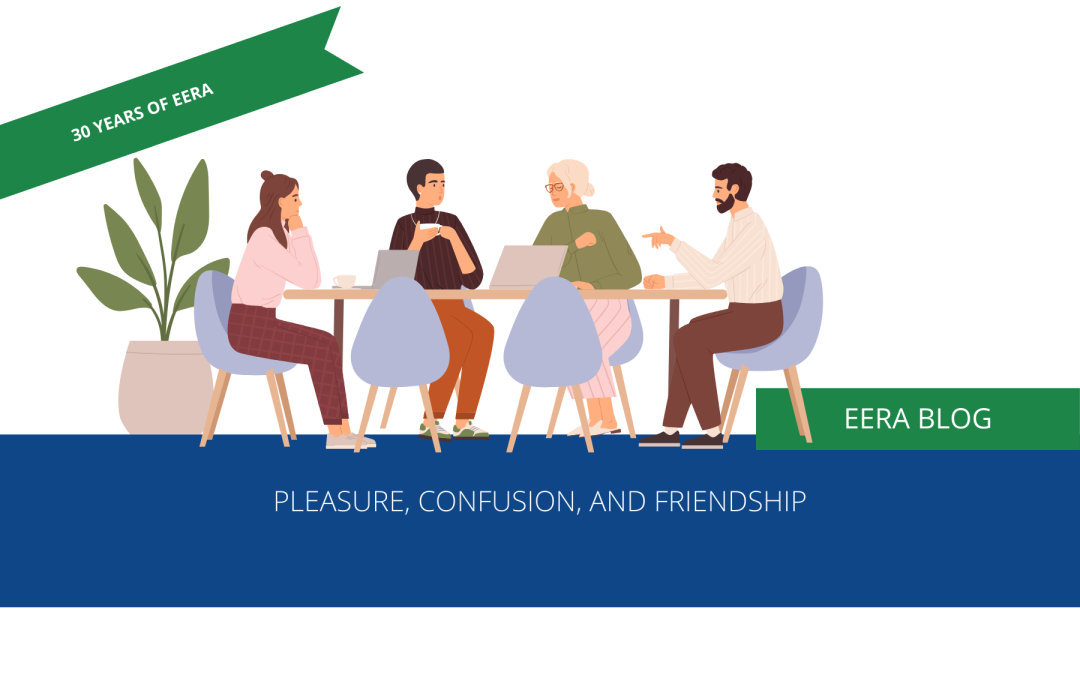
Pleasure, confusion, and friendship – 30 years of EERA
EERA is celebrating 30 years in 2024, and as part of our anniversary celebrations, we have invited people who have been at the heart of the association to share their memories and reflections. In a series of blog posts, which will run throughout 2024, we will share those precious memories, from the people who helped foster the global EERA community.
In this blog post, EERA’s first Secretary General and founding editor of the EERJ, Professor Martin Lawn, looks back on his time with EERA, and considers the future of the organisation.
Sometime in the late 90s, I was asked to join the very new European Educational Research Council by my own Association, the British Education Research Association. I had very limited experience working with European researchers, and my main colleagues were in North America. I had not heard about EERA, and I attended my first meeting, a small group, with one request from BERA. ‘Make sure our two conferences don’t conflict’. The first meeting was in a very good restaurant in Edinburgh, and I felt reassured about the future, even though the conversation seemed to reveal a deal of unresolved questions. Yet within a short time, I became its first Secretary General and my friend and colleague, Sverker Lindblad, its President. As I was bored with my English work context, and being middle-aged and foolish, I became heavily involved in the Association.
EERA had big problems then. There was no stable part of the organisation. In fact, in our imagination, it was important and growing, but in practice, it barely existed. There were no archives or key files, no money, no regular contacts, and some suspicion or ignorance of each other. It was very difficult to provide a clear plan of our work and an ideal conference model to anybody. My post became a nightmare, and it began to fill my entire working life. Most of all, it was common sense to think the ECER made money for the EERA, yet it was unclear where it went.
The Council arrived for meetings assuming a stability which did not exist. Over the years, most problems were solved but new ones always arose. At an early network evaluation of submissions, there was a strong feeling that most papers were national in focus, which, allied to the dominance of papers from England, led to some very annoyed delegates. So, a requirement to speak from the national to the European was made an evaluation item. Likewise, some gaming of the symposium idea led to a national dominance, and so, a new rule of three country representation was made. Sometimes, a new constraint had to be imposed: the customary idea of a banquet had to be ditched after attempts to feed everybody led to chaos, and a very sore point in ECER evaluations. EERA had a little but good newsletter, which I liked, but because we could not manage its distribution, it had to go.
We were rapidly leaving the pre-digital age, and communications between Council members and network convenors, and soon with members, made information flows possible. The move to Berlin was an excellent development in stabilising the EERA. An alliance with a publisher allowed the creation of an online journal, the EERJ, a site for serious discussions about the very thing we were involved with – the Europeanisation of educational research – and the policy issues we had to face or shape. Soon, the EERJ board became quite useful in proposing ECER speakers and devising the Moot, a self-governing space for educational research.
Just about every ECER colleague was familiar with their national context of education research – its agencies, foci, key actors – but when we began to act in the European context, we ‘pooled our ignorance’ and decided to start with Brussels, collect everything we could find and record any useful conversation. This wasn’t easy. Educational research wasn’t an issue in the early 2000s as it is now. Some people we assumed would be key informants were not. They were just passing through or were unsure themselves. A signifier of this problem was an early visit by the President and me to the Rue de La Loi in Brussels. Walking round and round this city block and unable to find our numbered entrance, we finally looked up and saw our number in bright green and three storeys tall! But this was the start of a serious attempt to find ourselves and our policy context.
For me, it led to studies in the Europeanisation of research, which led to a new field of work. It enabled the Moot to invite speakers from European associations and institutions, and the first President of the European Research Council to address an ECER meeting and invite us to participate. Finding good ECER speakers who could help us understand ways to analyse and act in our common Europe was part of the same mission. Over the years, many close colleagues in EERA and the EERJ, from the north and south, became good friends and creative partners in ideas about research, projects and writing. Large-scale projects – funded by the European Research Council or supported by national research funding – on knowledge and policy, European school inspection systems, or the influence of early testing communities in education, all came with strong EERA networking.
Often it is the case that organisations in their early days challenge themselves as to their purposes and tasks. When our circumstances stabilised, we did the same. Inviting knowledgeable speakers (EERA chose one, the host ECER association chose the other), inducting new council members and network convenors, and representing the Postgraduate Network directly in the Council.
But now is the time for another challenge. We have a large Council, revealing the success of our wish to represent all educational researchers in Europe. Yet, strangely, many members of the Council, including some Officers, have never given a paper at the ECER, seen how networks operate, or published in the EERJ. In the early days, there was an open discussion session where the Council could be called to account. This no longer exists. The separation between the governing body and its members appears wide; in some ways, this is a sign of growth.
It was said years ago that speakers at ECER should reflect the advice of a scientific council. Today, with increasing numbers of speakers, the challenge is perhaps less about representation and more about scientific purpose and quality. This would reconnect to our root cause – what is the purpose of EERA in relation to knowledge production and scientific quality in Europe?
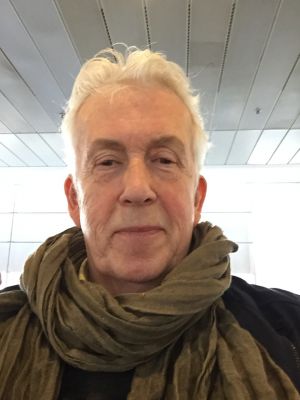
Professor Martin Lawn
Honorary Professor , School of Social and Political Science, University of Edinburgh
Martin has held a number of roles throughout his career. He was a Senior Research Fellow at the University of Oxford, Visiting Professor in CELE, University of Turku (Finland) and, Professor of Education at the University of Birmingham.
He was the Founding Editor of the European Educational Research Journal and the first Secretary General of the European Educational Research Association. He is a Fellow of the Academy of Social Science (UK). From 2002 to 2014, Martin was a Professorial Research Fellow at the Centre for Educational Sociology at the University of Edinburgh.
For many years, Martin has researched and published on teacher professionalism and the labour process of teaching. Currently, he researches European education policy and the 20th Century history of the educational sciences and comparative education.
Recent books include Assessment Cultures – historical perspectives [Peter Lang 2018], The Rise of Data in Education Systems – collection, visualisation and use [Symposium Books. Comparative Histories of Education Series 2014]; and Europeanizing Education – Governing a new Policy Space (with Sotiria Grek) [Symposium Books, Oxford 2012].

